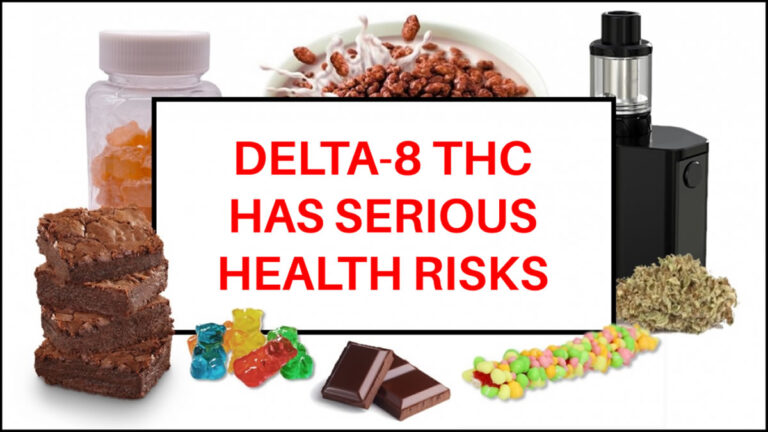In recent years, the cannabis industry has seen the emergence of a new compound called Delta-8 tetrahydrocannabinol, or Delta-8 THC for short. This substance, while similar to the more well-known Delta-9 THC found in marijuana, has distinct properties and legal considerations that consumers should be aware of. In this comprehensive guide, we will delve into the key facts about Delta-8 THC, its effects, the current regulatory landscape, and important safety considerations for those who may encounter these products.
What is Delta-8 THC?
Delta-8 THC is a psychoactive substance naturally occurring in cannabis plants, including both marijuana and hemp varieties. However, it is typically found in very low concentrations, which has led manufacturers to synthesize Delta-8 THC from hemp-derived cannabidiol (CBD) to create products with higher levels of this compound.
It's important to note that while Delta-8 THC is chemically similar to Delta-9 THC, the primary psychoactive compound in marijuana, it has a slightly different molecular structure. This difference in structure leads to milder psychoactive effects compared to Delta-9 THC, although both compounds interact with the body's endocannabinoid system and can produce a "high" or intoxicating effect.
Legal Status and Regulatory Concerns
One of the most significant issues surrounding Delta-8 THC is its legal status and the lack of regulation in the current market. The 2018 Farm Bill legalized hemp and hemp-derived products at the federal level, defining hemp as cannabis plants containing less than 0.3% Delta-9 THC. However, the bill did not specifically address Delta-8 THC, creating a legal gray area that many manufacturers have exploited.
As a result, Delta-8 THC products have proliferated in the market, often sold online and in retail stores with minimal oversight or quality control. This lack of regulation has raised serious concerns from the U.S. Food and Drug Administration (FDA), which has not evaluated or approved any Delta-8 THC products for safe consumption.
The FDA warns that the manufacturing process for Delta-8 THC products can involve potentially harmful chemicals, and the final products may contain contaminants or have inconsistent levels of Delta-8 THC. Additionally, some products are labeled in misleading ways, such as being marketed as "hemp products," which may give consumers a false sense of safety.
Health Risks and Adverse Event Reports
The unregulated nature of the Delta-8 THC market has led to numerous reports of adverse events and health risks associated with these products. Between December 2020 and February 2022, the FDA received 104 reports of adverse events related to Delta-8 THC consumption, with concerning symptoms such as:
- Hallucinations
- Vomiting
- Tremors
- Anxiety
- Dizziness
- Confusion
- Loss of consciousness
Of these reported cases, 77% involved adults, while 8% involved children under 18. More than half of the cases (55%) required medical intervention or hospital admission.
Similarly, national poison control centers have seen a surge in Delta-8 THC exposure cases, with 2,362 reported incidents between January 2021 and February 2022. Among these cases:
- 41% involved children under 18
- 40% were due to unintentional exposure, with 82% of these unintentional exposures affecting pediatric patients
- 70% required evaluation at a healthcare facility, with 8% resulting in critical care unit admission
Tragically, one pediatric case was reported with a fatal outcome, highlighting the severe risks posed by these unregulated products.
Protecting Vulnerable Populations
The alarming number of adverse events involving children and pets underscores the need for increased awareness and safeguards to protect vulnerable populations from accidental Delta-8 THC exposure.
Many Delta-8 THC products are packaged in ways that appeal to children, such as gummies, chocolates, and other familiar candy-like forms. These products are often sold online and in retail locations like convenience stores and gas stations, where age verification measures may be lacking.
To minimize the risk of accidental exposure, it is crucial for consumers to keep Delta-8 THC products out of reach of children and pets. Proper storage, clear labeling, and educating others about the potential dangers are essential steps in preventing unintended consequences.
Conclusion
As the Delta-8 THC market continues to grow, consumers must arm themselves with accurate, up-to-date information to make informed decisions about their health and well-being. While Delta-8 THC may offer some individuals an alternative to Delta-9 THC, the current lack of regulation and quality control in the market poses significant risks that should not be ignored.
By understanding the key facts about Delta-8 THC, its legal status, potential health risks, and the importance of safeguarding vulnerable populations, consumers can navigate this emerging landscape with greater awareness and caution. As more research is conducted and regulatory agencies work to address the challenges posed by Delta-8 THC, prioritizing consumer safety and education will be essential in shaping the future of this controversial cannabinoid.


